or start from open source methods. Learn more about OneLab softwareUse OneLab
Automated Protein Digestion in Food Matrix
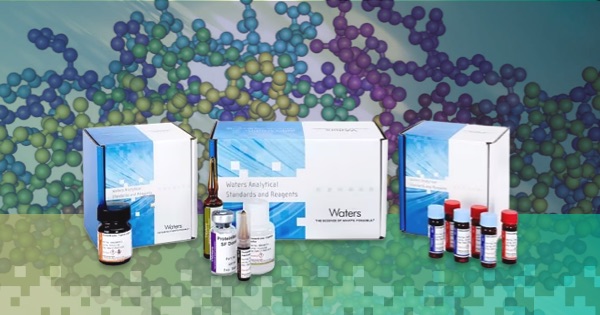
This basic method provides the core methodology for translating a workflow into OneLab-executable script(s) as an attempt to fully or semi-automate a specific procedure. It demonstrates the benefits of automation and highlights OneLab capabilities and best practices to promote solution adoption, helping transition from manual to a more automated approach. It can be used alone or serves as a building block for a more complex workflow and is easily adaptable to users' requirements.
Overview
The macronutrients, fat, protein, and carbohydrates provide energy and essential components to sustain life. To maintain longevity and health, a combination of these macronutrients is required in our food diet. Protein is essential to many body functions, such as tissue structure, hormone system, metabolic system, etc. Therefore, it is vital to understand and analyze the protein content in the food. Moreover, there may be a tendency for food fraud, usually for economic gains, with intentional mislabeling or blending of lower-grade food replacement.
Bottom-up proteomics is a valuable approach for discovering signature peptides to identify specific proteins found in food. However, food is a complex matrix that requires extensive sample preparation before analysis. Figure 1 below shows a typical 5-step workflow for tryptic protein digestion, which requires several repetitive additions of reagents. The preparation of calibration standards for quantitative analysis also adds to the pipetting tasks. Hence, it will be ideal to automate the whole process. In this tutorial method, we show an example of how to automate the protein digestion of milk samples using Andrew+ Pipetting Robot, as well as the serial dilution of calibration standards. The final mixture obtained will be ready for a typical quantitative LCMS analysis.
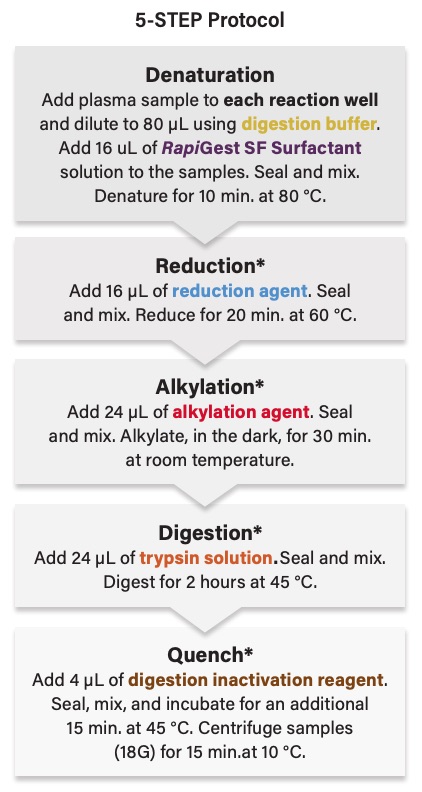
Figure 1: 5-Step Digestion Protocol
Assay notes
This procedure was designed as a general protocol and may need to be adjusted to suit individual sample needs. Milk samples were first diluted ten times with a digestion buffer before proceeding with the digestion protocol.
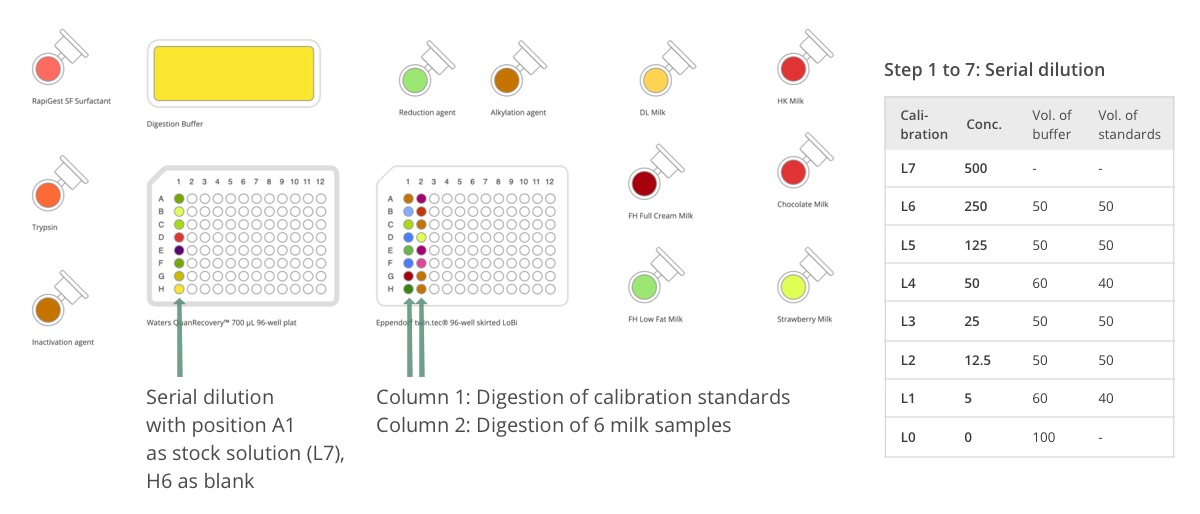
Figure 2: Protocol instructions. Samples and standards location and Serial dilution
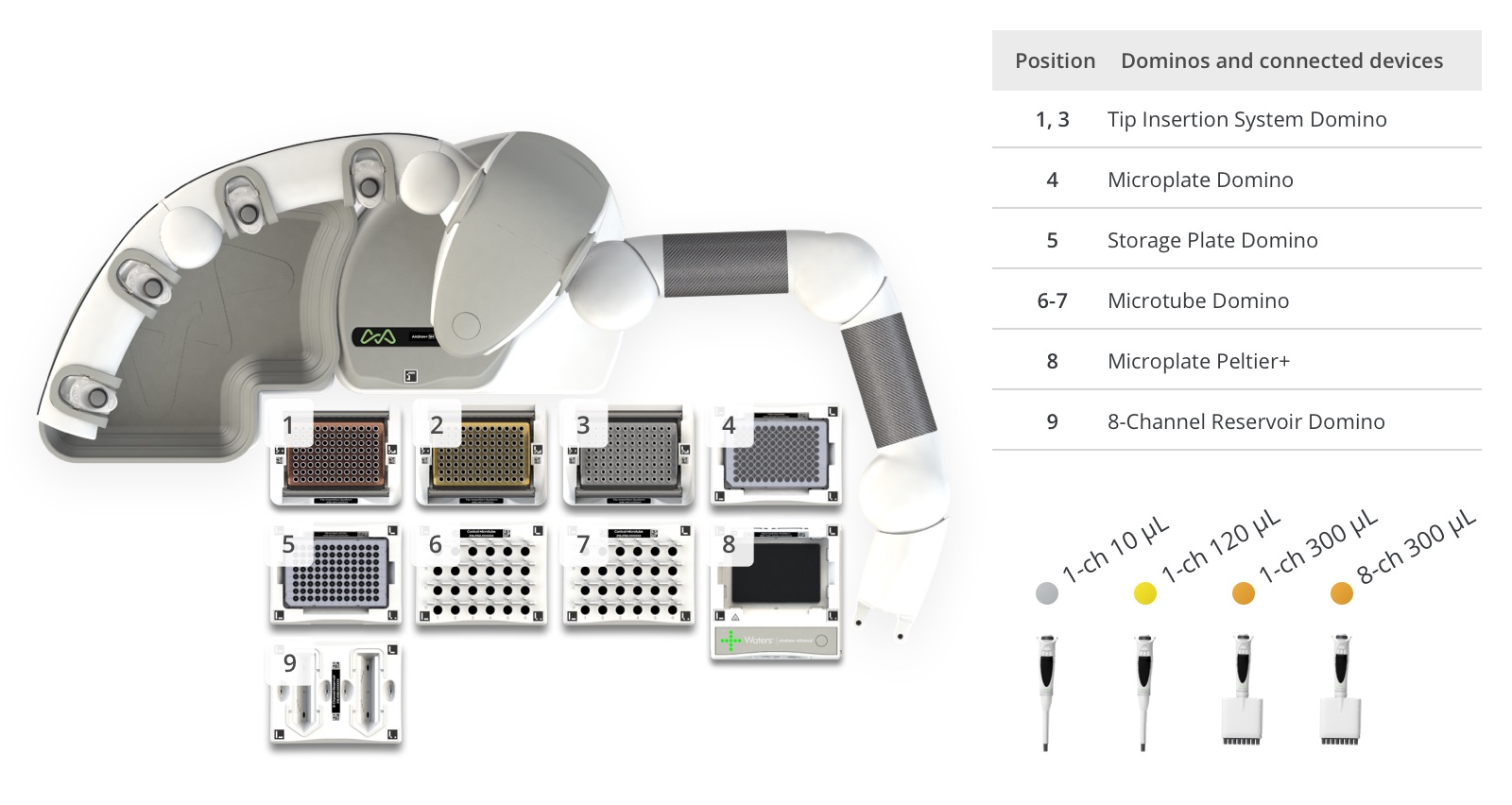
Figure 3: Andrew+ OneLab deck set up for the automated 5-step ProteinWorks procedure.Samples and reagents locations on Andrew+ deck: [1-3] Tips Insertion System Domino, [4] Microplate Domino, [5] Storage Plate Domino, [6-7] Microtube Domino, [8] Microplate Peltier+, [9] 8-channel Reservoir Domino
Protocol specifications
ProteinWorks 5-Step Milk Digestion:
- Estimated time of execution: 3h 50m 28s
- Hands-on time: 5 min 20s
- Tip consumption:
- 1 x 0.1-10 µL tips
- 8 x 5-120 μL tips
- 20 x 10-300 μL tips
Ordering information
Andrew+ System Components: Dominos, Devices, Electronic Pipettes & Tips
- Andrew+ Pipetting Robot
- OneLab software
- 3× Tip Insertion System Domino | p/n 186009612
- Microplate Domino | p/n 186009600
- Storage Plate Domino | p/n 186009596
- Microtube Domino | p/n 186009601
- Microplate Peltier+ | p/n 176004852
- 8-Channel Pipette Reservoir Domino | p/n 186009613
- Andrew Alliance Bluetooth Electronic Pipette, 1-ch 10 μL | p/n 186009769
- Andrew Alliance Bluetooth Electronic Pipette, 1-ch 120 μL | p/n 186009765
- Andrew Alliance Bluetooth Electronic Pipette, 1-ch 300 μL | p/n 186009606
- Andrew Alliance Bluetooth Electronic Pipette, 8-ch 300 μL | p/n 186009607
- 2× Pipette Adaptor Single Channel | p/n 186009590
- 2× Pipette Adaptor Multi-Channel | p/n 186009591
Recommended consumables
- ProteinWorks Auto-eXpress Low 5 Digest Kit | p/n 176004078
- Waters QuanRecovery 96-Well Plate, 700µL | p/n 186009184
- Waters Polypropylene Cap Mat for 96-well Plate | p/n 186002483
- Waters QuanRecovery Vials with MaxPeak pre-slit PTFE silicone cap and septum | p/n 176009186
- Fisherbrand™ Premium 1.5 mL microtube | p/n 11926955
- Eppendorf twin.tec® PCR Plate 96 LoBind® | p/n 0030129555
- INTEGRA 10 mL multichannel reservoir | p/n 4332
References
- Waters Application Note 720007335EN - Automated Sample Preparation Using Andrew+ Pipetting Robot for UPLC-MSE Identification and UPLC-MS/MS Quantification of Bovine Milk Proteins (https://www.waters.com/content/dam/waters/en/app-notes/2021/720007335/720007335-en.pdf)
- Waters Application Note 720007894EN - Automated ProteinWorks™ Sample Preparation Using Andrew+™ Pipetting Robot for Gelatin Speciation Analysis with ACQUITY™ Premier UPLC™ and Xevo™ TQ Absolute (https://www.waters.com/content/dam/waters/en/app-notes/2023/720007894/720007894-en.pdf)
- Waters Care & Use Manual 715005530EN - ProteinWorks Auto-eXpress Digest Kits (https://www.waters.com/webassets/cms/support/docs/715005530en.pdf)
Protocols
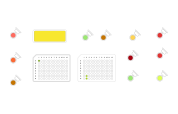
Contact info
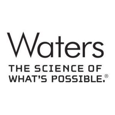
 This is an open access protocol distributed under the terms of the Creative Commons Attribution License, which permits unrestricted use, distribution, and reproduction in any medium, provided the original author and source are credited.
This is an open access protocol distributed under the terms of the Creative Commons Attribution License, which permits unrestricted use, distribution, and reproduction in any medium, provided the original author and source are credited. 